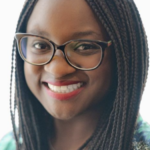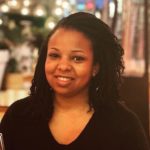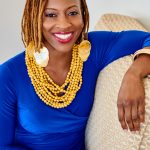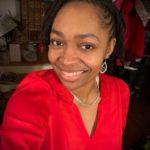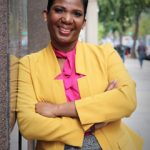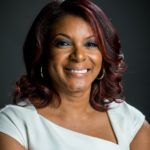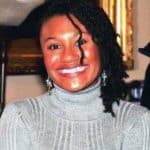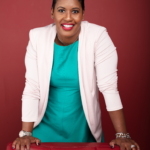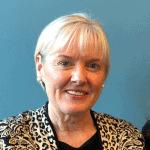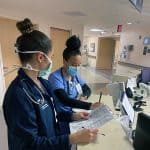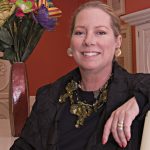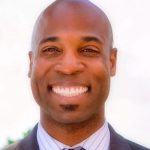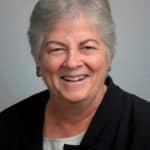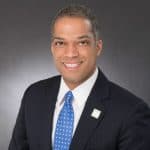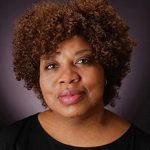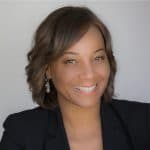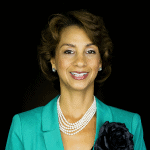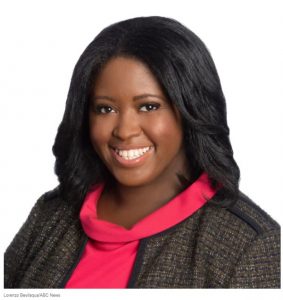
Beatrice Peterson Photo Credit Lorenzo Bevilaqua-ABC News
Beatrice Peterson is a political reporter and producer for ABC News. She traveled across the country covering the 2020 Presidential campaign and, in the summer of 2020, reported on Black Lives Matter protests in Washington, D.C. She previously worked as a video producer at POLITICO for more than four years. At POLITICO, she hosted, wrote, edited and produced “Today in Trumpworld,” a daily video news series for web and social media focused on the relationship between White House, government, public policy and politics.
She was in Trinity’s honors program, and graduated with a double major in political science and business with a focus on global business. After she graduated from Trinity, she earned her master’s degree from Columbia University Graduate School of Journalism.
In June 2020, Glamour magazine asked her to reflect on being a Black reporter during a time of crisis: “Black Lives Matter: 8 Journalists on Reporting While Black, With the Weight of History on Their Shoulders.” She was joined by Errin Haines, Abby Phillip, Kristen Welker and other nationally recognized reporters.
“Each day I wake up I’m focused on telling a story from my hometown which has been ravaged by coronavirus,” she said. “I feel a duty, especially now as many Americans still work from home, to tell the complex story of America. For many D.C. protesters I’ve spoken to, they want their voices heard as they come to peacefully protest for the first time in their lives. They want to be seen and heard. Some have tears in their eyes and pain in their hearts. … However, through all of the uncertainty, I remain hopeful. I stick to my golden rule: Don’t go to bed in fear or sadness; go to bed looking forward to the hope that comes from tomorrow. And although it may be hard, laugh at least once a day, every single day.”
Read her full reflection.
Read more about Beatrice Peterson ’12
“Black Lives Matter: 8 Journalists on Reporting While Black, With the Weight of History on Their Shoulders”
Glamour magazine, June 2020, as told to Mattie Kahn
Glamour magazine asked eight Black women journalists to reflect on their experiences covering two major national crises – the Covid pandemic and the racism that sparked demands for justice and Black Lives Matter protests.
Trinity graduate Beatrice Peterson ’12, a reporter and producer for ABC News, was featured in this article, joined by Errin Haines, Abby Phillip, Kristen Welker and other nationally recognized reporters.
“Here” is in the middle of dual public health crises: the coronavirus—which has claimed more than 100,000 lives and pummeled people of color with disproportionate force—and racism. Across all 50 states and around the world, people have taken to the streets to demand justice for George Floyd, Breonna Taylor, Ahmaud Arbery, and countless other victims of state-sanctioned violence, risking their lives to call for change.
On the ground with them, Black reporters are bearing a unique burden. The undercurrent of civil unrest, frustration, and grief isn’t just a familiar headline; it’s personal. And covering it for hours on end, with little sleep, exacts a toll. For Black women in the media, who have to contend with both racism and sexism, the cost is steep.
Here, eight journalists reflect on what it means to do their jobs in this era.
Beatrice Peterson, Reporter/Producer, ABC News:
I was sick with pneumonia for three and a half weeks in early March. Since then the world around me has changed as coronavirus has swept the country, leaving a path of death, destruction, and uncertainty. Although I’ve been reporting on coronavirus, it’s also a story that hits home. I know at least 15 people, all Black, who have died in the past three months, ranging in age from 30 to 70 years old.

Beatrice Peterson Photo Credit Lorenzo Bevilaqua-ABC News
I just started to go back into the field to report three weeks ago, and in that time the world has changed again. Reporting during a pandemic is one thing. Add a protest sweeping across the country and it’s a completely different situation. Before heading to protests in the past, I would have basics such as water and maybe goggles or a mask in case of tear gas. Now leaving the house has to be a carefully orchestrated movement that takes thoughtful planning. Every decision has to be about safety and protecting myself from uncertain elements while trying to limit my exposure in a city that is a hot spot for coronavirus.
Each day I wake up I’m focused on telling a story from my hometown which has been ravaged by coronavirus. I feel a duty, especially now as many Americans still work from home, to tell the complex story of America. For many D.C. protesters I’ve spoken to, they want their voices heard as they come to peacefully protest for the first time in their lives. They want to be seen and heard. Some have tears in their eyes and pain in their hearts.
Self-care and a support system are important. I have never been a regular sleeper and am notorious for getting caught up with work and forgetting to eat. I’ve noticed I’ve been sleeping a lot less and many of my colleagues tell me the same thing. I’m on the phone most days, checking in on friends who are also calling and checking in on me. Last week I struggled not to cry after hugging one of my best friends. I realized it was the first person I’d hugged since before I got sick two months ago.
However, through all of the uncertainty, I remain hopeful. I stick to my golden rule: Don’t go to bed in fear or sadness; go to bed looking forward to the hope that comes from tomorrow. And although it may be hard, laugh at least once a day, every single day.


